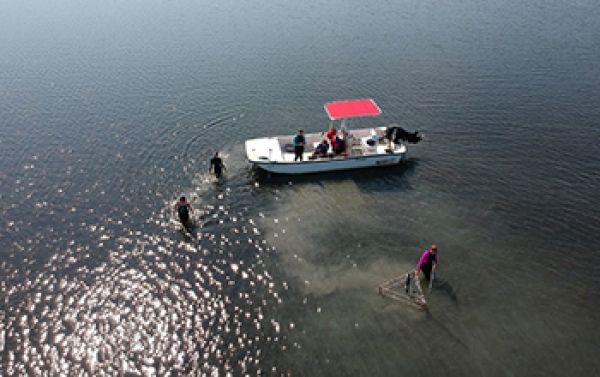As carbon dioxide emissions continue to increase, scientists have recognized that seagrass meadows are important to mitigation because they have high rates of carbon storage. However, rising ocean temperatures threaten seagrass meadows and their ability to retain carbon.
The situation underscores the need for ecosystem data on the vulnerability and resilience of these meadows and on the realistic potential of seagrasses for long-term carbon sequestration.
Over an 11-year period, researchers at the National Science Foundation-funded Virginia Coast Reserve Long-Term Ecological Research site used innovative instruments to measure the metabolism of an eelgrass meadow that had been restored in 2001.
Continue reading at National Science Foundation
Image via National Science Foundation


